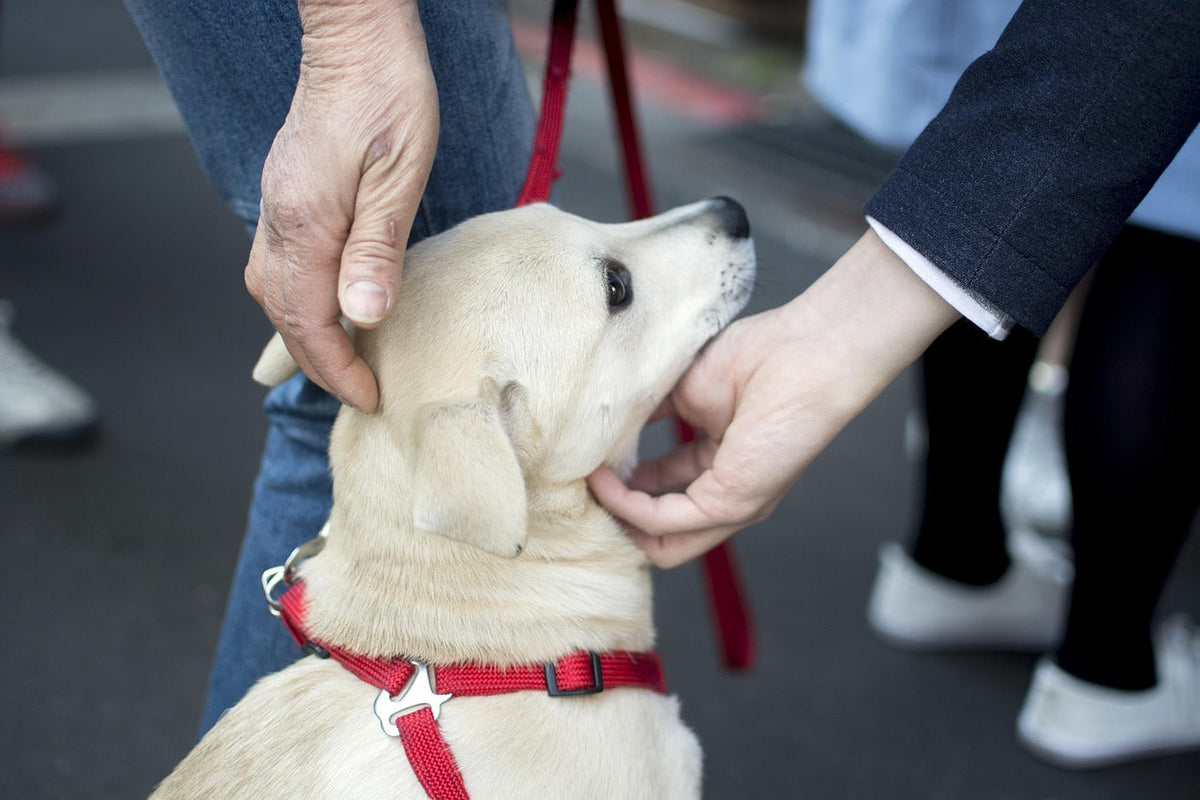
Your Dog Deserves the Same Respect You Do
|
|
Would you prefer to ask to be touched?
Or at least give your consent?
Would you feel safe and seen if people touched you how they wanted to, ignoring your polite requests?
Would you like someone else to decide where you sit?
Every single day?
Or wake you for no reason when you sleep?
These aren't just questions about human boundaries. They're about basic respect for autonomy, something we instinctively understand for ourselves but often forget when it comes to our dogs.
When your dog turns their head away from a pat, steps back from an approaching hand, or moves to their bed when guests arrive, they're communicating just as clearly as you do when you need personal space.
Recent studies in canine cognition have shown that dogs have rich emotional lives and clear preferences about physical contact.
Research shows that dogs show measurable stress responses increased cortisol levels and changes in heart rate when forced into interactions they're uncomfortable with.
Just like humans, dogs have a personal bubble, and respecting it isn't anthropomorphism, it's science.
Think about how you feel when someone invades your personal space without permission. That flutter of anxiety, that urge to step back, that slight tension in your shoulders.
Your dog experiences these same physiological responses. They just express them differently through lip licking, yawning, looking away, or that telltale "whale eye" where you can see the whites of their eyes.
Do you like having agency and autonomy over your own body and a say in what happens to you?
Do you like being important in the eyes of your friends and family?
Do you like being seen for who you actually are?
Rather than judged by someone's interpretation or opinion of you?
Every dog has preferences, fears, joys, and boundaries that are uniquely theirs. Some dogs love belly rubs; others find them overwhelming.
Some thrive in busy dog parks; others prefer quiet walks with just their person.
When we honour these individual differences instead of forcing our dogs into one-size-fits-all expectations, we create relationships built on mutual trust rather than compliance.
Dr. Alexandra Horowitz, a leading researcher in dog cognition at Barnard College, emphasises that dogs aren't just "furry humans" or "babies in dog suits." They're individuals with their own umwelt their unique sensory and perceptual world.
When we acknowledge this, we stop trying to make our dogs fit into human-shaped boxes and start seeing them for who they truly are.
Your dog isn't "stubborn" for not wanting to greet every stranger. They're simply being themselves and that deserves the same respect you'd want for your own choices.
The Border Collie who hides when visitors arrive isn't being rude; they might be introverted.
The Labrador who doesn't fetch might just prefer sniffing games or quiet companionship.
How do we translate this understanding into daily life?
How do we show our dogs that their voices matter?
That their preferences count?
That they're partners, not property?
Start small. Before touching your dog, extend your hand and wait. Let them come to you.
If they turn away, respect that choice. Create "choice points" throughout the day two different walking routes, the option to engage in training or rest, the freedom to approach new people or observe from a distance.
Research from the University of Lincoln shows that dogs given more choices in their daily lives display fewer stress-related behaviours and stronger bonds with their humans.
It's not about letting your dog "run wild" or abandoning all structure. It's about recognising that compliance isn't the same as contentment, and obedience isn't the same as trust.
Watch how your dog's entire demeanour changes when they realise they have a say.
That tentative tail wag becomes more confident. Those worried eyes soften. The dog who used to freeze when strangers approached now either chooses to greet them enthusiastically or calmly moves away both equally valid choices.
Consider this: We've spent thousands of years domesticating dogs, selecting for traits that make them dependent on us.
The least we can do is honour that dependence with respect for their autonomy wherever safely possible.
Your dog can't open doors, can't choose their food, can't decide when to go outside without your help. But they can decide if they want to be touched, where they want to rest, and how they want to interact with the world.
Every time you pause to consider your dog's preference, you're acknowledging a fundamental truth that applies to every sentient being:
We all deserve to be seen, heard, and respected for who we are.
We all deserve to feel safe in our own bodies.
We all deserve to have our boundaries honoured.
Including our dogs!
Living with a scared dog? Learn from the story of my little puppy farm survivor, Holly!
Horowitz, A. (2009). Inside of a Dog: What Dogs See, Smell, and Know. Scribner.
